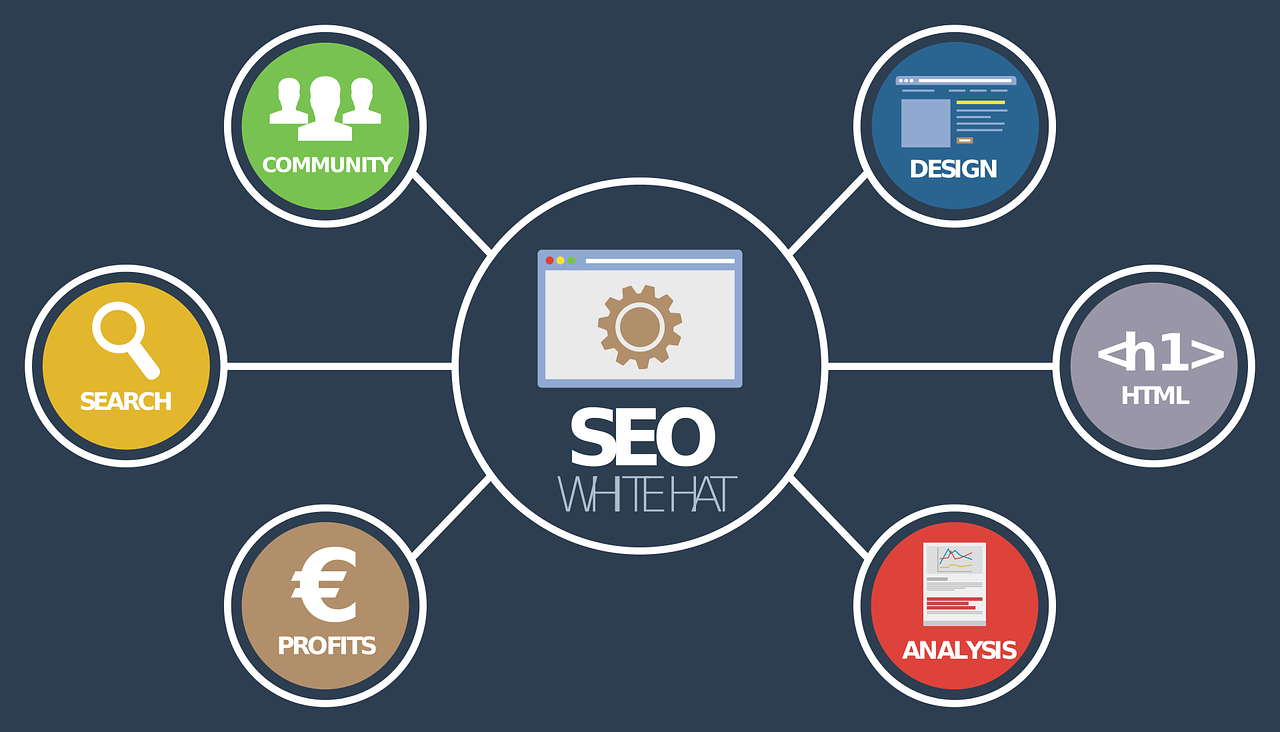Understanding CMS SEO: How to Optimize Your Content Management System for Better Search Rankings
|
IN BRIEF
|
In the digital landscape, optimizing your Content Management System (CMS) for search engines is crucial for achieving better visibility and driving organic traffic. CMS SEO involves enhancing the architecture and content of your website built on a CMS to align with best practices that search engines favor. By leveraging the right tools and techniques, you can ensure that your content is effectively indexed, improving your search rankings and ultimately boosting your online presence. Understanding the core principles of CMS SEO will empower you to optimize your platform effectively, making your content more accessible and relevant to users and search engines alike.

Understanding SEO for Content Management Systems
SEO for Content Management Systems (CMS) is a crucial aspect that enables websites to enhance their visibility on search engines. By streamlining optimization efforts, a well-chosen CMS can significantly improve your site’s search engine rankings and attract more traffic. It involves a comprehensive process of adjusting various elements within a CMS, ensuring that they adhere to SEO best practices. For instance, platforms like WordPress and Joomla come equipped with built-in tools to manage meta tags and improve loading speeds, both of which are essential for elevating your site’s performance in search results.
When selecting a CMS, it is important to consider features that support SEO optimization, such as mobile-friendliness, customizable URLs, and an intuitive interface that simplifies content management. For example, utilizing a CMS that allows for quick adjustments to title tags and alt text enables you to enhance the SEO appeal of each page effectively. Such capabilities are vital as they not only make your website more accessible to search engine crawlers but also enhance user experience, leading to better engagement metrics. Therefore, understanding the interplay between your chosen CMS and SEO strategies is essential for maximizing your online presence.

Choosing the Right Content Management System for SEO
When it comes to optimizing your website for search engines, the choice of a Content Management System (CMS) is critical. A well-chosen CMS can significantly enhance your website’s SEO performance. For instance, platforms like WordPress, known for their user-friendly interface and rich set of built-in SEO tools, can streamline optimization efforts and make it easier to adhere to SEO best practices. According to recent studies, websites utilizing WordPress are approximately 50% more likely to rank on the first page of search results compared to those built on less optimized systems.
Moreover, the speed at which your page loads is a pivotal factor in SEO, as search engines prioritize quicker loading times in their ranking algorithms. A CMS that is fast, customizable, and supports necessary plugins will allow for quicker adjustments to meta tags, 301 redirects, and other essential optimizations. To illustrate, leveraging plugins like Yoast SEO can provide valuable insights and suggestions for improving content visibility in search results, thus enhancing overall search engine performance.
It’s also crucial to address common challenges, such as duplicate content issues, which can negatively impact SEO rankings. Integrating a CMS that offers solutions to manage and rectify duplicate content is vital for maintaining the integrity of your website’s content and ensuring its optimal visibility in search results. For more detailed guidance on tackling these issues, refer to this article.
Mastering CMS for SEO
Understanding the Components of CMS-Driven SEO
The process of optimizing websites built on Content Management Systems (CMS) is crucial for enhancing online visibility. When leveraging a CMS, businesses must consider how to marry content creation with SEO best practices. A well-structured CMS allows users to organize, manage, and optimize content effectively while seamlessly integrating features that facilitate search engine optimization. For instance, WordPress offers plugins like Yoast SEO that simplify tasks such as managing meta tags and optimizing keyword usage.
Moreover, evaluating the initial setup of your CMS can significantly impact your site’s performance in search engine rankings. For example, certain platforms like Shopify or Drupal come equipped with built-in SEO tools. Utilizing these tools correctly enables businesses to enhance their chances of ranking higher on Search Engine Result Pages (SERPs).
- Flexible content management capabilities that allow quick adjustments and updates
- Customizable templates that support responsive design for mobile optimization
- Built-in analytics features for tracking performance and user engagement
- Access to a range of plugins or extensions for additional SEO functionalities
By selecting the right CMS that possesses these features, organizations can streamline their SEO efforts and ultimately drive more traffic to their sites. Whether you’re using Joomla, Drupal, or other notable CMS platforms, ensuring they support SEO-friendly practices is vital for success.
For further insights on how to optimize your chosen platform for the best SEO results, consider reading more about SEO strategies tailored specifically for CMS’s at Strikepoint Media and the best CMS for SEO at SEO Profy.

Understanding the Impact of CMS on SEO
When it comes to optimizing your online content, selecting the right Content Management System (CMS) is crucial. The effectiveness of your SEO strategies largely depends on the capabilities of your CMS. A well-chosen CMS will not only facilitate the creation and management of content but also ensure that it is optimized for search engines. This makes it easier for your audience to discover your content, ultimately boosting your site’s traffic and visibility.
Essential features for a CMS to enhance SEO performance include speed, user-friendliness, and customization options. These factors contribute to better search engine rankings and help in managing and organizing your content effectively. Certain CMS platforms come equipped with built-in SEO tools that can streamline optimization processes, helping businesses automate tasks that would otherwise consume time and resources.
In addition, understanding and addressing issues like duplicate content is vital for maintaining a healthy SERP presence. It is also important to consider that the integration of SEO plugins can significantly improve your site’s functionality, enabling features such as meta tag management and 301 redirects. By leveraging these characteristics, you can greatly enhance your content’s reach and effectiveness across various search engines.

Understanding CMS SEO: Optimizing Your Content Management System for Better Search Rankings
In today’s digital landscape, mastering SEO for your Content Management System (CMS) is essential for enhancing your website’s visibility. By leveraging the right features in a CMS, businesses can streamline their optimization efforts and achieve improved search engine rankings. Key aspects of effective CMS SEO include utilizing built-in SEO tools, ensuring fast loading times, and maintaining user-friendly interfaces.
Choosing a CMS that aligns with your SEO goals can make a significant difference in your overall strategy. For instance, platforms like WordPress and Shopify offer various customization options and automation tools that facilitate seamless content delivery to search engines. It’s also critical to address issues such as duplicate content and metadata optimization to maintain a competitive edge.
Understanding the intricate relationship between your CMS and SEO can empower content creators to effectively harness their platforms. As technology evolves, ongoing education about the latest trends and best practices will prove invaluable in ensuring that your SEO efforts remain fruitful.














Post Comment